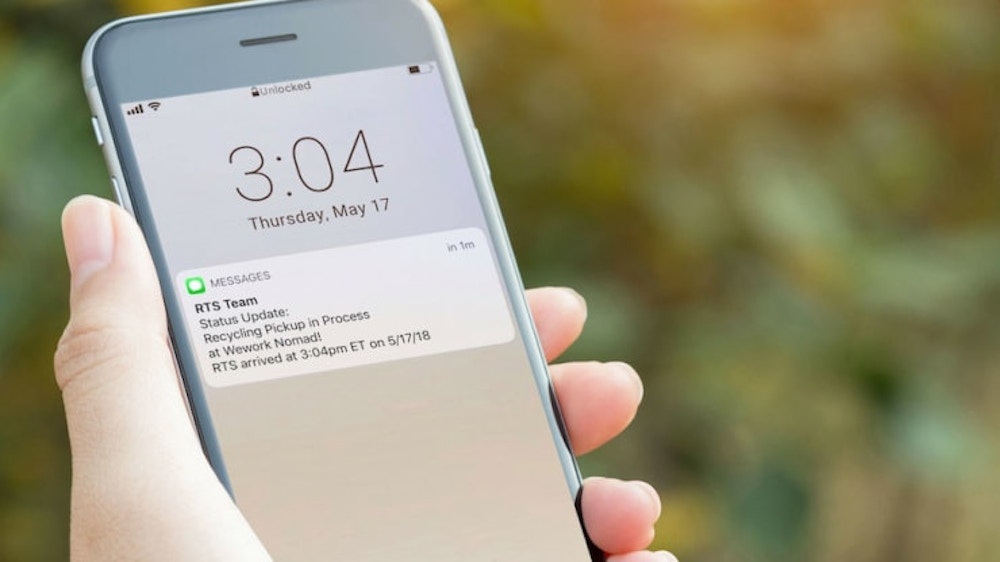Four years ago, Greg Lettieri and Adam Pasquale found their startup idea in the garbage.
The CEO and COO, respectively, of Recycle Track Systems (RTS) offers up environmentally focused waste removal and recycling by connecting its clients with independent haulers. Its major selling point, however, takes a page out of Uber’s driving manual, using technology that tracks trash from pickup to drop-off.
New York-based RTS partners with local sanitation companies to transport garbage by installing rideshare tech in their trucks. Client companies get multiple notifications on where their waste is going via RTS’s proprietary software and experts in waste management. RTS also offers on-demand service for larger items, like furniture or electronics. In June 2017, the company closed a series A financing round with Volition Capital worth $11.7 million.
The startup aims to take food waste straight to the farm where it is converted to soil. Waste with high potential to be laced with plastic gets sent to a facility to be cleaned. In fact, the CEO explained that environmental concerns are a focus of his company.
“Food waste is 35 percent of the waste stream, making it a real problem with landfills,” Lettieri told CNBC recently. “We need more people on this, the amount of material being thrown out needs to change.”
RTS operates in New York, Washington D.C., Philadelphia, Baltimore and Chicago, offering its services to restaurants, schools, hotels, stadiums and supermarkets.
RTS software collects data on what type of waste the company is producing and how to reduce their footprint, and a company expert can give a lesson about how the client can be more sustainable. One of those clients is WeWork, the booming work sharing company that has locations mushrooming all over New York City that started working with RTS back in February 2016.
“As we expand our footprint, we have to consistently consider our impact on the local community and the environment,” said WeWork’s director of Tri-State operations Jeff Safenowitz.
RTS’s current list of clients also includes Whole Foods, the Barclays Center, Citi Field, SoulCycle, WeWork, the Washington Nationals and the D.C. United.
Citi Field, home of the New York Mets, has been working with RTS since October 2017. In one of their largest collaborations with the field, RTS helped clean up after the 2018 National Hockey League Winter Classic.
After the event, RTS donated 18,000 square footage of plywood used to build the rink, and 27 rolls of unused snow to Materials for the Arts, a Long Island City, NY-based program that supports thousands of non-profit organizations and public schools throughout the Big Apple.
“Baseball is getting serious about going zero waste and being more sustainable, it’s a major responsibility for us and for sports teams and leagues in general” said Micheal Dohnert, Operations Director at Citi Field. “RTS has been pretty incremental in that: what needs to be replaced, what should we be looking for.”
